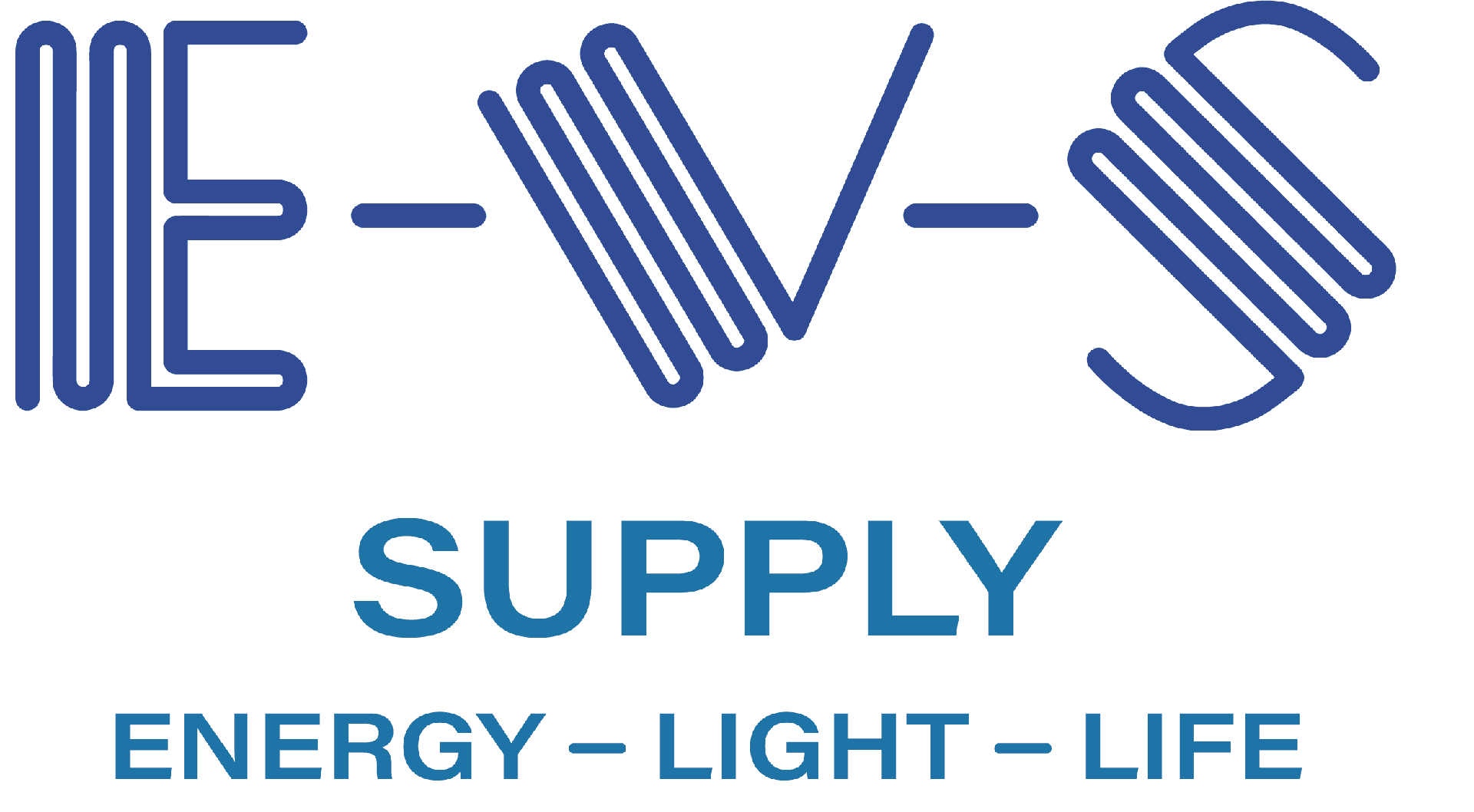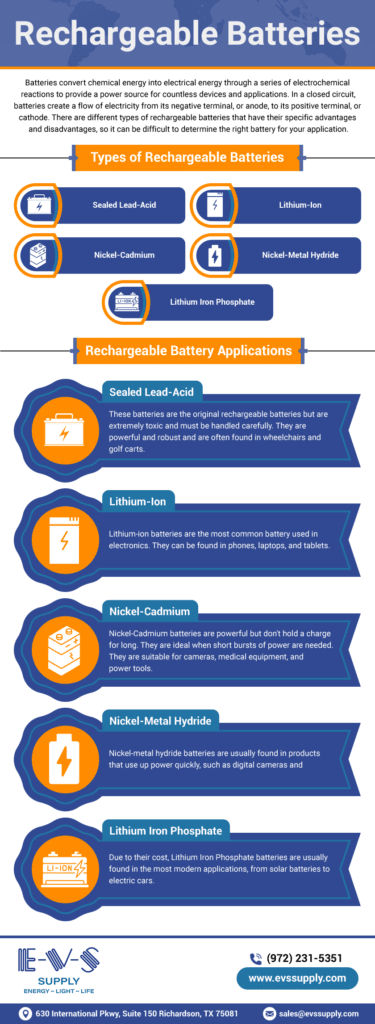Batteries convert chemical energy into electrical energy through a series of electrochemical reactions to provide a power source for countless devices and applications. In a closed circuit, batteries create a flow of electricity from its negative terminal, or anode, to its positive terminal, or cathode. There are different types of rechargeable batteries that have their specific advantages and disadvantages, so it can be difficult to determine the right battery for your application.
Over the past fifty years, rechargeable batteries have become an increasingly popular power source, from the lithium-ion batteries in our electronic products to the lead-acid batteries in our vehicles. EVS Supply is a leading rechargeable battery supplier. Our team uses its expertise to assist clients in finding the most efficient power source solution for their application.
Types of Rechargeable Batteries
There are a variety of rechargeable batteries, each constructed of different materials and used for different purposes. They include:
- Sealed Lead-Acid: Also known as a valve-regulated lead-acid battery, a sealed lead-acid battery is an enclosed rechargeable battery made of plates or cylindrical cells. They are differentiated by their automated pressure release valve, which releases gas when the internal pressure threatens to exceed safety limits.
- Lithium-ion: Lithium-ion batteries use metal oxide as the cathode and graphite as the anode. Lithium ions travel from the anode to the cathode, generating electricity. The ions flow in the opposite direction when charging. They are distinguished by having a higher capacity than lead-acid batteries, a longer shelf life, and their ability to carry an efficient charge.
- Nickel-Cadmium: Nickel-Cadmium batteries are some of the first rechargeable batteries created. They can supply a powerful electric current but can’t sustain a charge for long periods. However, because of their low capacity, they charge quickly and are useful when you need a great deal of power for a short amount of time. Although Cadmium is toxic for the environment, they tend to be longer-lasting, so they are rarely thrown away.
- Nickel-metal Hydride: Nickel-metal hydride batteries are the modern version of nickel-cadmium batteries and outperform them in almost every way, except they don’t last as long. They work well for high-power products, and they are far less toxic than cadmium. Unfortunately, they tend to lose energy quickly when not in use, but engineers have developed a low self-discharge version that improves this issue.
- Lithium Iron Phosphate: Lithium Iron Phosphate batteries are a type of lithium-ion battery, except they are longer-lasting, extremely lightweight, and have a greater charge efficiency. They can be more expensive, but their long life span makes them worth the investment.
Rechargeable Battery Applications
Each type of rechargeable battery is specially designed to be used for a variety of products. Some examples include:
- Sealed Lead-acid: These batteries are the original rechargeable batteries but are extremely toxic and must be handled carefully. They are powerful and robust and are often found in wheelchairs and golf carts.
- Lithium-ion: Lithium-ion batteries are the most common battery used in electronics. They can be found in phones, laptops, and tablets.
- Nickel-Cadmium: Nickel-Cadmium batteries are powerful but don’t hold a charge for long. They are ideal when short bursts of power are needed. They are suitable for cameras, medical equipment, and power tools.
- Nickel-metal Hydride: Nickel-metal hydride batteries are usually found in products that use up power quickly, such as digital cameras and hybrid-electrical vehicles.
- Lithium Iron Phosphate: Due to their cost, Lithium Iron Phosphate batteries are usually found in the most modern applications, from solar batteries to electric cars.
Rechargeable Battery Solution at EVS Supply
There are a variety of rechargeable batteries suitable for a wide range of applications, and EVS Supply can help you find the right solution for your business. For more information about EVS Supply and our products, contact us today!

